Don't mention the war/fossil fuels
Some thoughts on Australia's National Climate Risk Assessment
National Climate Risk Assessment word cloud.
Gramsci, the Italian neo-Marxist intellectual, understood that what each of us holds in our brains is ‘fragmentary’ and ’incoherent’. It is a ‘chaotic aggregate of disparate conceptions’ - and ‘one can find there anything that one likes’.
Keep that in your mind on those days when the political gaslighting is off the charts. I sometimes wonder how my firing neurons are processing this batshit-fossil-fuelled-crazy stuff. And my example below is not even from the fully paid up professional climate-denying wingnuts.
Recently Australia’s Federal government released our first ever ‘National Climate Risk Asssessment’. Not quite on the same day - the gap between them was a whole 72 hours - Australia’s Environment (sic) Minister, Murray Watt gave final approval to the Woodside north west shelf gas project, with operations planned to extend up to 2070.
Watt told us that Albanese government was protecting (sic) First Nations cultural heritage, and protecting (sic) the environment, as well as protecting (sic) jobs all at the same time.
I must be reading too much of The Fucking News, by Jonathan Larsen (go on, subscribe, it is the sweary news). I’ve picked up his (sic) tic. Let me leave that to the proper professional. Here’s what our Minister Watt told us: “It does not have to be one or the other”, he says.
In ALP-land, you can protect the environment by pouring into the atmosphere we all have to live within - the atmosphere we will hand on to upcoming generations - another 4 billion tonnes of climate pollution.
I wrote last year about how fossil fuelled political donations affect the numeracy of our politicians. It makes them say that have approved ZERO new coal mines, based on the new mines being part of an existing company. Not ‘new’ mines, just huge, dirty extensions of ones already there. Our current Labor government is finding more new stories to tell themselves how their ongoing choregraphy with the dirty fossil fuel cartel is legal, or part of the ‘journey’ to transition.
This is not less dangerous, rhetorically, than Trump’s bald-faced support for fossil fuels, most recently at the UN.
c.125, 000 words, but no room for climate accountability
The National Climate Risk Assessment is a hefty 284 pages, and just under 125, 000 words. Some expert reviews have pulled out the headline points, for example The Climate Council, and The Conversation. Extreme heat, lots of extra deaths, flooding and sea level rises, lots and lots of money down the drain. If you’re paying attention you’ll know what’s coming.
While there’s still some room to negotiate the future, the existing and still rising levels of climate pollution in the atmosphere will have their say. Keep your eyes on the data records at the Global Monitoring Lab - this graph shows annual increase of CO2, year on year, since 1960.
Source: https://gml.noaa.gov/webdata/ccgg/trends/co2_data_mlo_anngr.png
This is the context for Labor’s approval of this new project. Their rubbish narratives about it are a newer kind of climate denial. The ALP are literally denying the climate impacts of their decisions.
Among the risk assessments set out in this report, do you think the ongoing burning of fossil fuels is considered a ‘risk’? And with the many many climate ‘hazards’ that are detailed across the 284 page report, are oil, coal and gas projects registered as hazardous and dangerous to current and future?
Over the many pages and tens of thousands of words in this report, there was space for only one single mention of fossil fuels. And it is hidden away in parentheses.
Coal and gas get one single mention in this national climate risk review. I would find it funny if I didn’t lie awake at night wondering what my kids, grandkid, and all the other beautiful young and coming people in my life are going to face because of corporate and political greed. Here’s the joke: coal and gas-fired plants are mentioned to explain that they too are vulnerable to extreme heat. Oil apparently not relevant at all.
It’s always about grammar
Look I haven’t read the whole report. It is 284 pages. So if I’m being unfair to anyone, just let me know in the comments below. And I have to say I’m personally not that worried about the drain on the Australian Defence Force being called to mop up climate disasters. It may be the one positive about extreme weather that nation state militaries are so caught up at home, they are no longer involved in the very high polluting activities of organized violence.
But here is the first sentence of this crucial report from the Key Findings section:
Australia’s climate is changing and will continue to change into the future. The country is likely to experience more intense and extreme climate hazards, and in some cases in areas where people and places haven’t experienced these hazards before.
This kind of wording is what made Greenpeace Director say, on reading this report that:
The grammar of this critical opening sentence is letting the climate wreckers off the hook. It is precisely the grammar you use when you don’t want to attribute responsibility. The climate is simply ‘changing’, all on its own.
And I know we have to talk about ‘adapting’ to planetary heating. ‘Adaptation’ is doing a lot of work in this report, and comes in at number 8 on word frequency list - I’ve popped the top 20 below.
‘
The climate is changing so we have to adapt’. Two verbs used in ‘middle’ voice. This is a key message from the report - but it could be a talking point from a dirty fossil fuel corporation.
No accountability here. No political courage. No recognition of the fuckers who are continuing to spread climate denial and disinformation. This report, called Decades of Deceit was released in May this year by the Union of Concerned Scientists. I’ll be coming back to this report in upcoming posts.
As I browsed around the National Climate Risk Assessment, the following statement caught my eye:
Australians will be impacted by loss of important ecosystems and species by the middle of the century, without implementing direct intervention and adaptation actions.
I thought, OK, this might be a coded message from the honest and hardworking scientists and bureaucrats who worked on this document. Maybe they snuck in some intimations that in the face of the current and coming climate impacts, we should do some interventions to stop these impacts getting even worse.
We already know that whatever interventions are proposed, they don’t rely on the use of the word ‘fossil fuels’. But I thought it was worth a look. I decided I would review every instance of the word ‘intervention/s’ to see whether there was any kind of call to action, however obscure. My faithful readers are worth this linguistic labour.
Using the beautiful corpus linguistics tool called #Lancsbox X (thanks Lancaster U linguists!), I called up every use of the term ‘intervention’, including any plural forms of the word. My task was easy - ‘intervention’ only takes up 12 of the 124, 778 words in this text. There’s really not much to see here.
Two of the 12 examples are in relation to ‘human intervention’, which ‘may faciliate adjustment to the expected climate and its effects’ … Great. Thanks.
Why the word ‘risk’ is risky in climate communications
The word list above, and indeed the word cloud, make clear that the report is very wedded to the words ‘risk’ and ‘risks’. Who could be surprised by this. But I have written before that words are complex things - as my colleague Prof Lise Fontaine has said, they are like the TARDIS, bigger on the inside. I am still jealous that she thought of this first.
So ‘risk’ and ‘risks’ come with a network of meanings. Most importantly for discussion of ‘climate risk’ is that ‘risks’ are not real, in the sense that they don’t currently exist, and may not ever exist. If do they become real, it will be in some unspecified future time.
This meaning of ‘risk’ is so handy, it has been weaponized by the fossil fuel cartel. If you haven’t already, read about it my post about it here, or even better, check out the original research by Professors Jeffrey Supran and Naomi Oreskes, published in 2021, and based on their study of ExxonMobil communications.
We need to adapt not because of ‘risks’ but because of what the decades of deceit and political betrayal has already baked into our future. If something is still a ‘risk’, it can be changed. In the face of risks, we should not be adapting, we should be taking action, and urgently cutting out fossil fuels as much as we can.
Everyone word in the climate space matters. Choose them carefully and wisely.
Taking action makes you feel better
If you need a place to channel your climate anxiety, and you live not too far from Newcastle, register now for the 2025 Rising Tide Blockade and Protestival. Check the socials for information sessions, and how to get involved.



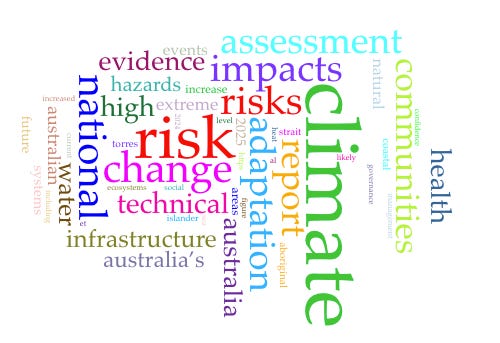
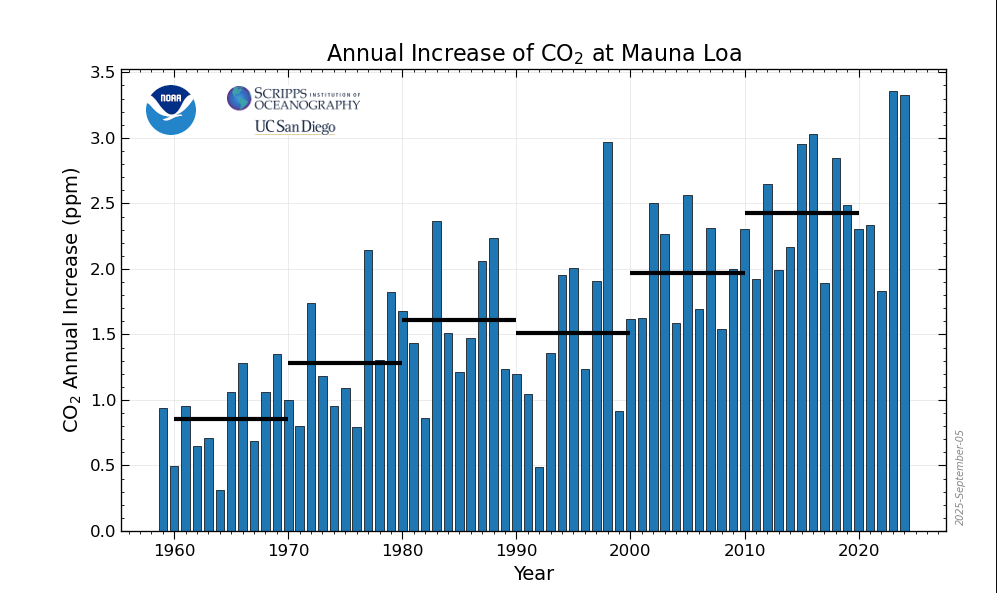
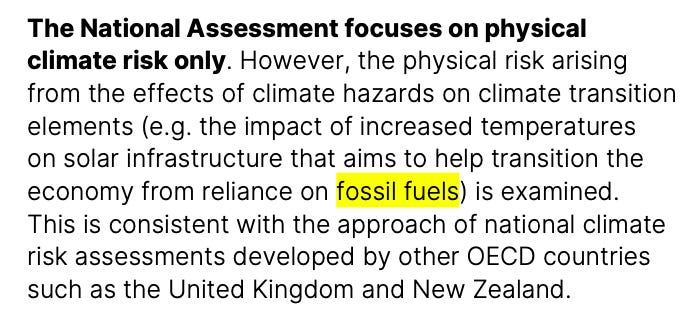
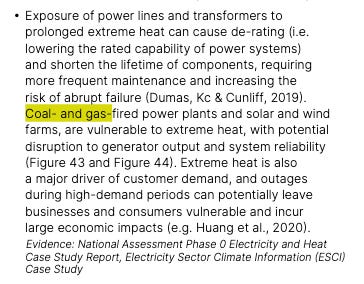


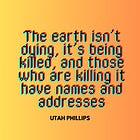
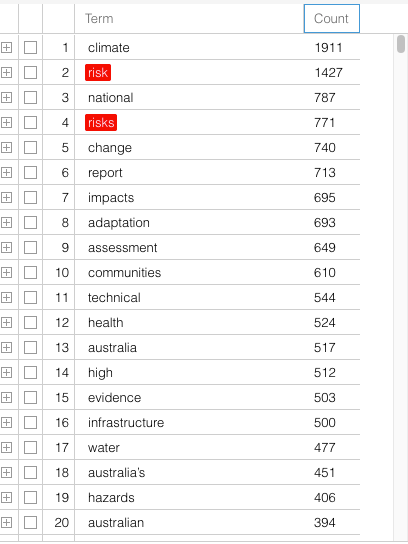
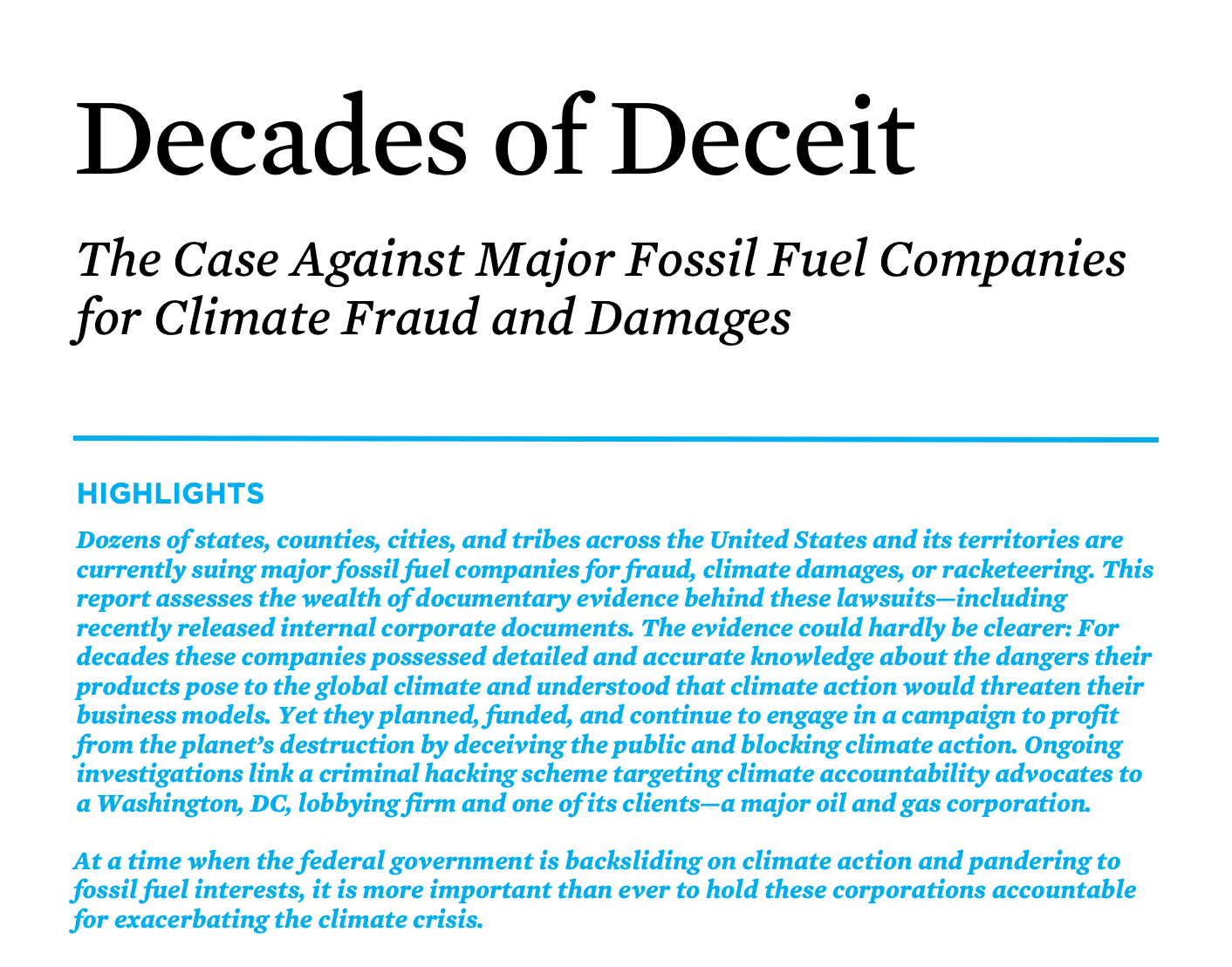
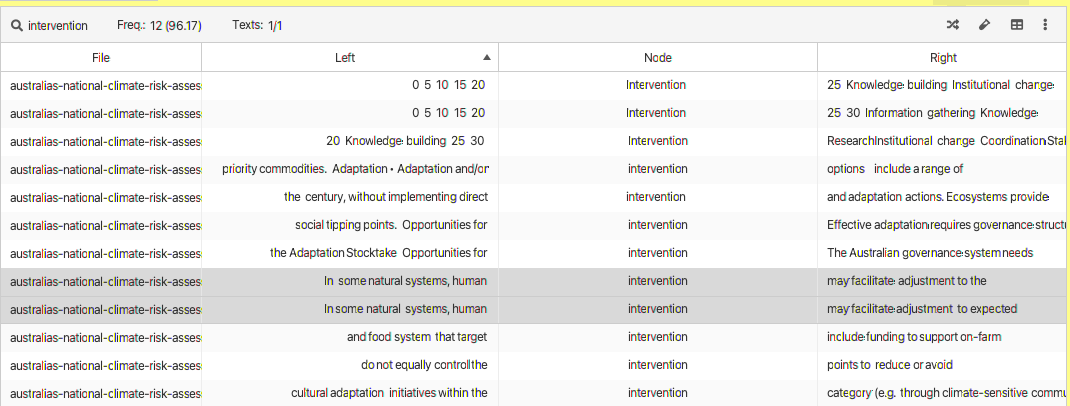
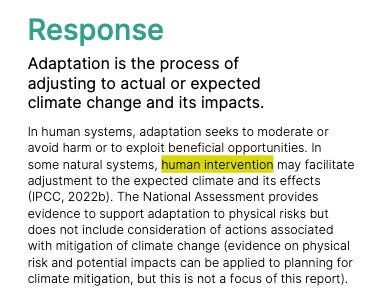
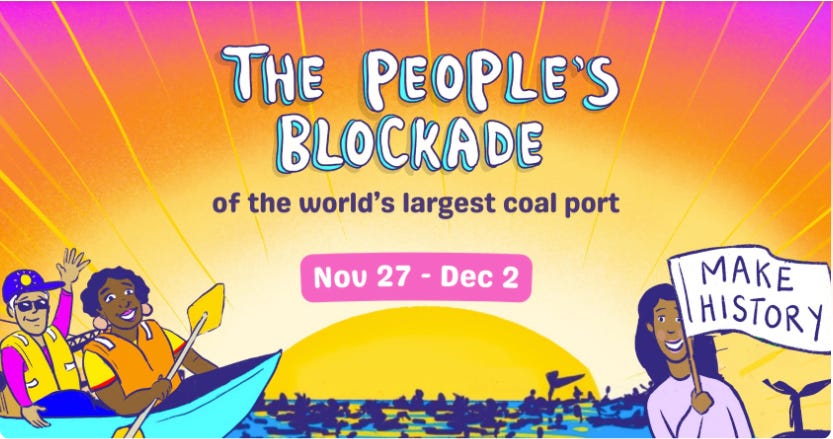
“In ALP Land” lol, never have I been more disappointed in a government with the Power to actually do something still fumbling this boring middle ground :(